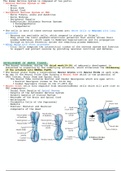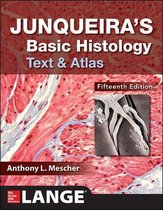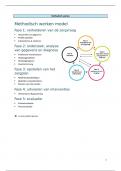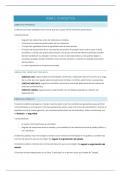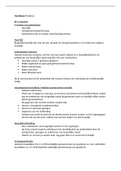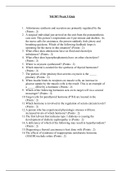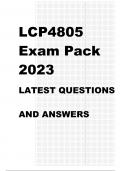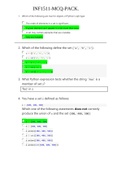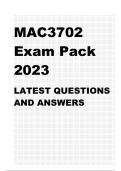Samenvatting
Summary Nervous System Histology
- Vak
- Instelling
- Boek
Summary of Junqueira: Histology of the Nervous System with additional material from Netter's, DeFiore's and Weiss' Atlases. Includes abridged but detailed explanation of key points with Electron Microscopy, H&E, Immunohistochemistry and Diagrams.
[Meer zien]
